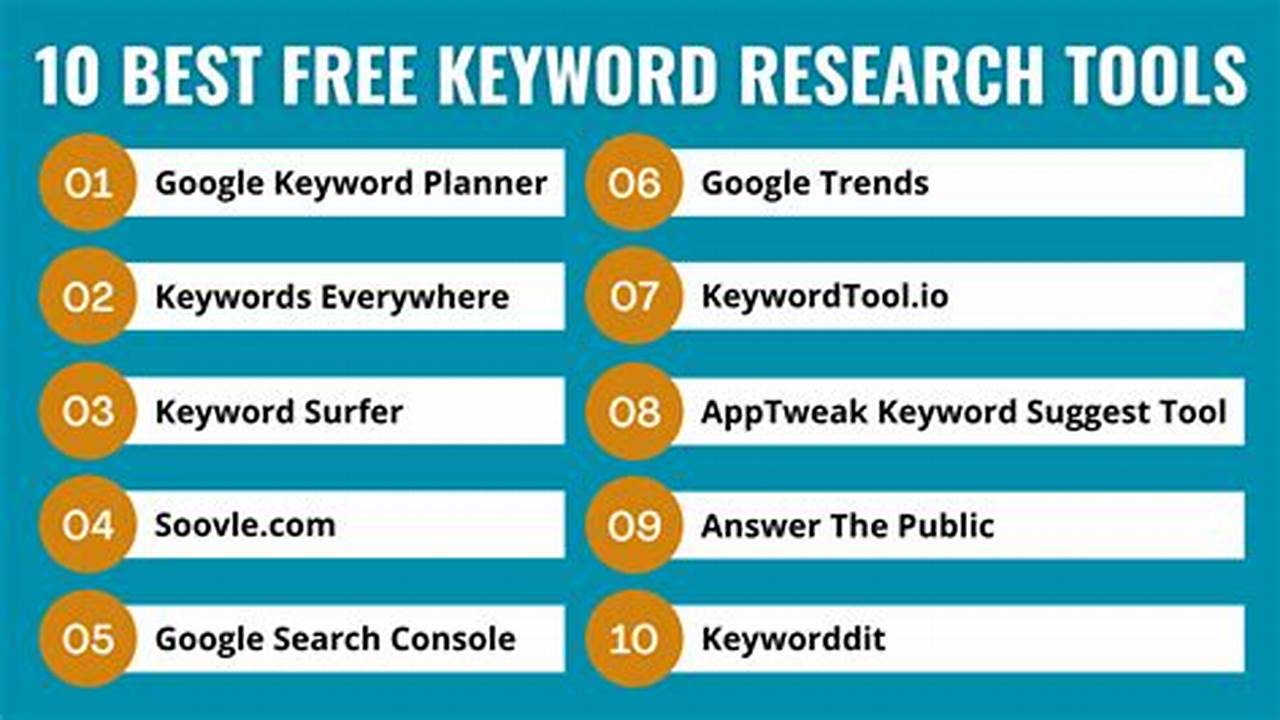Understanding the competitive landscape of search engine optimization (SEO) requires access to robust and reliable data. Software solutions designed for SEO research provide crucial insights into keyword rankings, backlink profiles, website traffic, and overall online visibility. Selecting the right tools can significantly impact the effectiveness of SEO strategies, enabling data-driven decisions and ultimately, improved search engine rankings.
Keyword Research
Effective keyword research identifies the terms users employ when searching for specific products, services, or information. This process informs content creation and on-page optimization strategies.
Competitive Analysis
Analyzing competitor strategies provides valuable insights into successful tactics. Understanding competitor keywords, backlinks, and content helps identify opportunities and refine SEO approaches.
Backlink Analysis
Examining the quantity and quality of backlinks pointing to a website is crucial for assessing its authority and search engine ranking potential. Tools can identify both valuable backlinks and potentially harmful ones.
Rank Tracking
Monitoring keyword rankings over time provides a clear picture of SEO campaign progress. Tracking fluctuations helps identify areas for improvement and measure the impact of optimization efforts.
Site Audit
Regular site audits identify technical SEO issues that may hinder search engine crawlers and negatively impact rankings. Addressing these issues improves website performance and accessibility.
Content Optimization
Analyzing content performance and identifying areas for improvement is essential for maximizing organic traffic. Tools can provide insights into content relevance, keyword usage, and readability.
Reporting and Analytics
Comprehensive reporting and analytics features are essential for tracking key performance indicators (KPIs) and demonstrating the return on investment (ROI) of SEO efforts.
Integration with Other Tools
Seamless integration with other marketing and analytics platforms streamlines workflows and provides a holistic view of digital marketing performance.
Tips for Choosing SEO Research Tools
Consider specific SEO needs and goals. Different tools specialize in different areas, such as keyword research, backlink analysis, or technical SEO.
Evaluate the user interface and ease of use. A user-friendly interface simplifies complex data analysis and improves overall efficiency.
Assess the data accuracy and reliability. Accurate data is crucial for making informed decisions and optimizing SEO strategies effectively.
Consider pricing and budget constraints. Tools range in price from free options to premium subscriptions with advanced features.
Frequently Asked Questions
How do SEO research tools improve website rankings?
By providing data-driven insights into keyword performance, competitor strategies, and website health, these tools empower users to optimize their online presence and improve their search engine visibility.
What are the key features to look for in an SEO research tool?
Essential features include keyword research capabilities, competitive analysis tools, backlink analysis, rank tracking, site audit functionality, and comprehensive reporting and analytics.
Are free SEO research tools sufficient for small businesses?
While free tools can provide basic insights, premium tools often offer more advanced features, larger data sets, and more comprehensive reporting capabilities that can be beneficial for businesses of all sizes.
How often should I use SEO research tools?
Regular use is recommended, with the frequency depending on the specific needs and goals of the SEO campaign. Ongoing monitoring and analysis are crucial for staying ahead of the competition and adapting to changes in the search landscape.
Can SEO research tools guarantee top rankings?
While these tools provide valuable data and insights, they cannot guarantee top rankings. SEO is a complex and ever-evolving field, and achieving top rankings requires a comprehensive strategy that encompasses various factors beyond the scope of any single tool.
What’s the difference between “best” and “top” in the context of SEO tools?
While often used interchangeably, “best” implies a qualitative judgment based on features, performance, and user experience. “Top” usually refers to popularity or market share. A tool can be popular (top) without necessarily being the best fit for specific needs.
Leveraging the insights provided by SEO research tools empowers website owners and marketers to make informed decisions, optimize their online presence, and ultimately achieve higher search engine rankings and increased organic traffic.

Leave a Reply